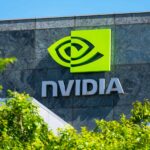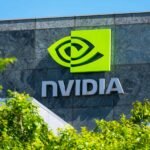
Nvidia CEO Jensen Huang said on Friday he hopes the company’s cutting-edge Blackwell chips can eventually be sold in China, though the final decision rests with U.S. President Donald Trump.
Speaking during his first official visit to South Korea in more than a decade, a day after Trump and Chinese President Xi Jinping held talks there, Huang said he was pleased by the outcome of the meeting but was unaware of the details of their discussion.
Following the talks on Thursday, Trump told reporters aboard Air Force One that semiconductors had been discussed and that China would “be talking to Nvidia and others about taking chips.” However, he clarified, “We’re not talking about the Blackwell.”
“We’re always hoping to return to China, and I think Nvidia in China is very good. It’s in the best interest of the United States. It’s in the best interest of China,” Huang said. “So I’m hopeful that both governments will arrive at a conclusion someday where Nvidia’s technology could be exported to China.”
U.S.-China Friction
China’s access to Nvidia’s advanced AI chips has become a central point of tension between Washington and Beijing as both compete for dominance in high-end computing and artificial intelligence.
The U.S. government has imposed export controls on Nvidia’s most advanced AI chips to China, aiming to curb its technological progress, particularly in areas that could enhance its military capabilities.
Huang has sought to persuade the Trump administration to relax these restrictions, arguing that China’s reliance on U.S. hardware ultimately benefits American interests.
Nvidia has reportedly been developing a new China-specific chip based on its latest Blackwell architecture. The chip would be less powerful than the global version but stronger than the H20 — the most advanced model currently permitted for sale in China.
While private Chinese firms are said to be eager to purchase the new chip, Beijing has discouraged procurement of the H20 and has been promoting domestic manufacturers such as Huawei instead.
Huang acknowledged that Nvidia had initially hoped to retain a “non-zero market share” in China but now expects it to be “zero.”
He argued that U.S. national security concerns over China’s potential military use of U.S. technology are misplaced, noting that China’s domestic AI chips are already advanced enough for such applications.
“It is foolish to underestimate the might of China and the incredible competitive spirit of Huawei,” Huang said. “This is a company with extraordinary technology. It’s deeply uninformed to think that Huawei can’t build systems.”
The post Nvidia’s Jensen Huang hopes to resume chip sales in China, awaits Trump’s decision appeared first on Profit by Pakistan Today.
